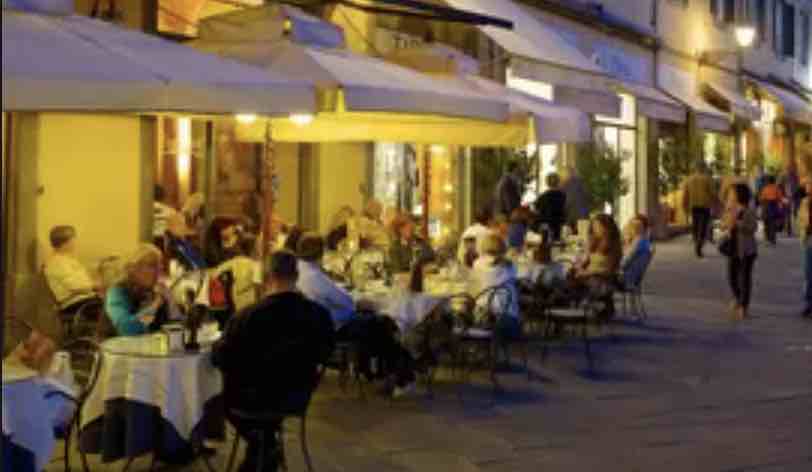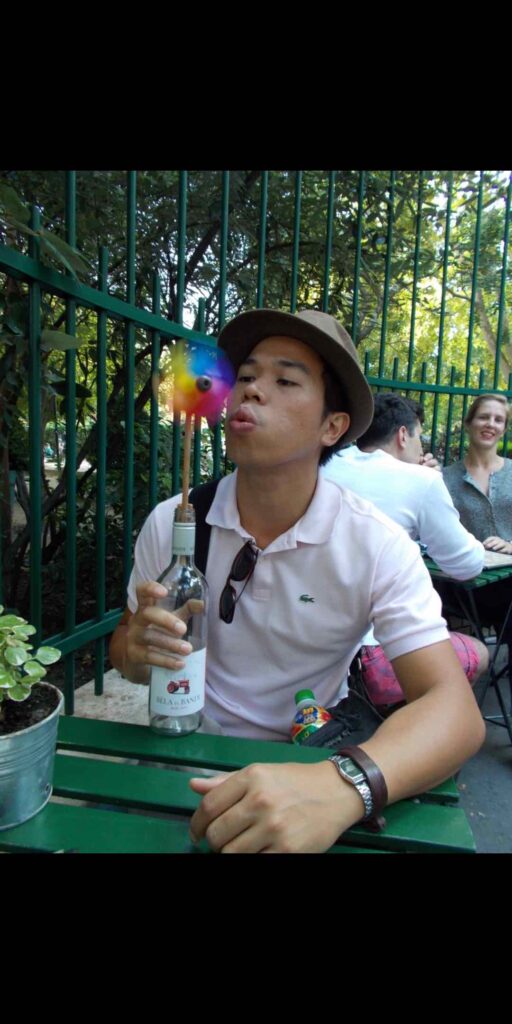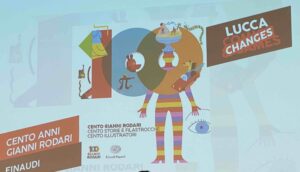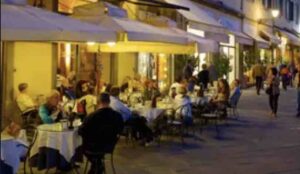
by
Carlo Rey Lacsamana
In the café eavesdropping becomes permissible as a consequence of hanging out. Various shades of conversations, a salad of issues: politics, love affairs, work, school, passions, ambitions, news, pandemic… Everything is indulged in: the banal, the ridiculous, the cant, the outrageous, the pitiful… No topic goes to waste.
Café people’s appetite for chattering is bottomless. Small talk is coffee’s greatest achievement.
There’s a café at the end of piazza San Francesco. If you are coming from Via del Fosso turn right and immediately you see a row of little round tables and cushioned chairs beneath the shade. I often come to this café for its modestly priced delicious homemade cakes, the low volume jazz music on the stereo, and for the sheer lightness of wondering in the open-air with the wonder-enhancing smell of coffee in front of you. Also praiseworthy is the bartenders’ admirable musical taste. There are cafés around town that are more charming, more cozy, more appetizing than this one but most of them if not all of them are diminished through bad music. A beautiful café with unrefined taste for music is like a well ornamented piece of pastry with disappointingly musty flavor. Unpleasant music has a debilitating effect in our capacity for wonder.
It is Sunday. The third day of the minor lockdown (all cafés, restaurants, and pubs close at 6pm, curfew starts at 10pm and ends at 5am). Mid-morning. I am sitting at a table drinking coffee, observing the people wholesomely enjoy refreshment and recreation on a Sunday, trying to adapt to the new order of things. A young couple step out of the bar with a plate of pizza slices and cans of coke. They sit themselves right across my table..
The implementation of a minor lockdown after months long of total lockdown suggests in a way our ferocious skill at forgetting, our incapacity to question our prevailing way of life which is ironically put into question by the virus.
Truly if we had learned the seriousness of our situation, the drastic changes this COVID-19 is asking of our personal, social, cultural, and spiritual lives, a day like today would be stuffed with meaning, more than the sunniness and carefreeness of a Sunday, more than the liberties and rights the West is obsessing about.
A meaning whose demands are deep, death-oriented, life-focused.
A grateful and grieving engagement with our days.
(As I write this there are three hundred deaths and some tens of thousands of newly infected cases in the country today.)
I hear the young couple speak English to each other. I can’t figure out their accent. They are foreigners. At the other table an old lady with an extraordinarily shrill voice answers her phone while flipping the newspaper, a group of loud kids on bicycles cross the sunlit street, a dog starts barking at another dog, two men converse by the fountain while filling their drinking bottles.
“I don’t know if today is my last day on earth,” the young lady says nonchalantly, smilingly to her company who indulgently munches the slice of pizza. I lost the thread of their conversation, but that phrase has registered to my memory instantly.
Of course, deep in her heart she knows, as I know, as everybody in the café would care to know, that today isn’t her last day on earth. Not very often but it comes by some chance that we are confronted by this proposition: your last day on earth. And very often we have prepared precooked plans as to how our final day will proceed.
At a deeper interrogation our answers and plans do not convince us, without admitting it to ourselves. They are not convincing because we cannot summon the idea of our own ending, because we grew up in a culture illiterate about the nature of endings.
What if we rearrange the proposition of that young lady and put it this way: You don’t know if today or tomorrow or the day after tomorrow is the last day of those you hold dear and everything you cherish. Now this arrangement requires a deeper engagement with life, a deeper loneliness to see that side of things. It requires hard work and learning, a profound embracing of grief and love to feel the swell that those around you are going to have to end.
What now?
Don’t wait for another Sunday and another lockdown to wonder about that.

Carlo Rey Lacsamana is a Filipino born and raised in Manila, Philippines. Since 2005, he has been living and working in the Tuscan town of Lucca, Italy. He regularly contributes to journals in the Philippines, writing politics, culture, and art. He also writes for a local academic magazine in Tuscany that is published twice a year. His articles have been published in magazines in the U.S., Canada, the U.K., India, and Mexico. Visit his website or follow him on Instagram @carlo_rey_lacsamana.


I found his writing to be very thoughtful at this time. I just lost two cousins within a week. Not from Covid 19 but from old age. Still what he writes is so thought-provoking. I’m having trouble getting over their deaths. There is no closure yet as everything has been private. All I can do at the moment is pray for their souls. Just hope everyone stays safe and we will be over this by next year.